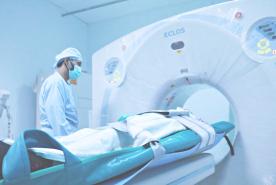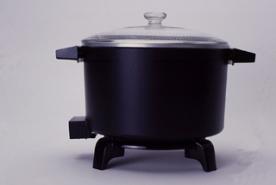April 27, 2023
Continuing education series for professionals.
It is possible to have a healthy pregnancy after a kidney transplant with careful family planning. Start these discussions early and frequently to help your patient safely achieve their family goals. Here's how.
Fertility after transplant
A patient’s fertility is likely to return after a kidney transplant.
"Women with kidney disease or on dialysis usually have fertility impairment because of hormonal changes. Fertility generally returns within 6 to 8 weeks of getting a transplant," said Dr. Silvi Shah, a transplant nephrologist at the University of Cincinnati. "They will start having normal menstrual cycles and the hormonal disruptions that occurred with chronic kidney disease revert back. Normal levels of estrogen and progesterone and their sexual drive will likely return."
Patients should wait at least one year to get pregnant because it decreases the risk of losing the transplant and adverse birth outcomes. To avoid these negative outcomes, healthcare professionals often recommend birth control.
"Patients need contraception with low failure rates that are individualized based on their risk factors. For example, if they have a history of hypertension, lupus nephritis, or thrombosis, they cannot be on combined oral contraceptive pills," Dr. Silvi Shah said. "Barrier contraception and condoms aren't recommended because they have a high failure rate. Overall, intrauterine devices and progesterone are the most commonly suggested for those with a kidney transplant."
Why wait to become pregnant
The transplant recipient and the fetus's safety are the two main reasons to wait a year before attempting pregnancy.
"Following my transplant, I had very regular cycles but I waited two years before I conceived and followed all the rules that my doctor provided for me. I switched my medications well in advance but I had a lot of fear. I questioned if I could get pregnant, if my kidney would fail, and what my donor would think," said Amanda Trinsey, kidney transplant recipient. "The goal was to have a planned pregnancy with all our ducks in a row including my labs and medications. I was able to deliver two healthy babies almost to full term after receiving a kidney transplant.”
That's not to say that Amanda didn't face any complications during both pregnancies.
"I developed severe anemia and decreased red blood cell levels with both pregnancies. No one knew what was going on until we contacted a UK team that specializes in post-transplant pregnancies. I started Aranesp® (darbepoetin alfa) injections, which is a drug that is approved to anemia caused by chronic kidney disease in people are both on and off dialysis, and my levels were right back to normal," said Amanda. "My tacrolimus levels also fluctuated wildly and I had to significantly increase my dosage."
Adverse outcomes for the transplant recipient
When transplant recipients want to get pregnant, closely examine their kidney function to ensure they are as safe as possible from risks like;
- Preeclampsia
- Hypertension
- Transplant rejection
To best avoid these outcomes, the transplant recipient should have the following:
- A stable eGFR
- No proteinuria
- Well-controlled blood pressure
- Well-controlled blood sugar
- No recent rejection episodes
It's also pertinent to discuss your state's abortion laws with patients, as a quick termination of life or kidney-threatening pregnancy may not be an option. Keep reading about the implications of the Dobb ruling for kidney and transplant patients.
Adverse birth outcomes
Post-transplant medications may lead to possible adverse birth outcomes including;
- Pregnancy loss if taking teratogenic medications
- Preterm births
- Low birth weight
"The backbone to immunosuppression medications are calcineurin inhibitors including both tacrolimus and cyclosporine. These are considered safe in pregnancy but may create a higher risk for preterm delivery and miscarriages in transplant recipients on immunosuppression medications," said Heather Haynes, transplant pharmacist. "Mycophenolate mofetil is teratogenic to fetuses so it is recommended to switch to a similar medication called azathioprine. Prednisone is safe to be continued during pregnancy but at a lower dose. Transitioning them from an mTOR inhibitor to a calcineurin inhibitor is also recommended."
Monitor your patient closely after they become pregnant, keeping an eye out for creatinine levels over 1.5 mg/dL.
"We usually monitor the patient's creatinine every four weeks if they are at a lower risk of adverse events. If we see creatinine levels worsening, we would monitor it more frequently. We have limited options to treat rejection. Steroids are safe, but we use high doses in case they have acute cellular rejection. If they have an antibody-mediated rejection or a mixed rejection, our options are even more limited," said Dr. Silvi Shah. "We can use steroids or Thymoglobulin® [anti-thymocyte globulin (rabbit)] which has not been well-studied. It depends on the overall clinical picture, the age of gestation, and how bad the rejection is."
Take the Reproductive Health After Kidney Transplant quiz to earn free CE.
Resources
These resources may help your patients better understand pregnancy after kidney transplantation;
- Sexuality and Kidney Transplant
- Pregnancy and Kidney Transplant
- Having Children After Transplant? 10 Frequently Asked Questions
Earn CE On the Go
Listen and earn CE as our panelists delve into the subjects that matter most to you while offering in-depth clinical updates and real-world examples of these changes. Subscribe to The Kidney Commute Podcast.


















